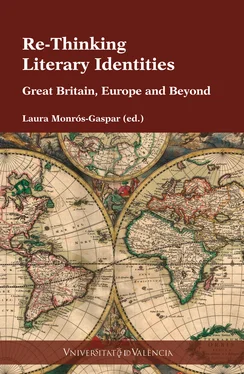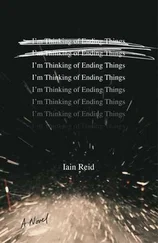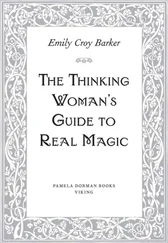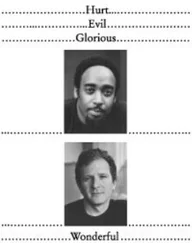Indeed, this is a lively and vibrant scene, with a healthy tension between continuity and innovation: the liminalities of community and exile, identity and language, home and nation, personal and public voice are traditional themes, but also new challenges. A peculiar trait of the context that has been sketched so far is the generalised presence of translation. The three anthologies we have considered in this chapter are all bilingual Gaelic-English editions, and in fact since the publication of Donald MacAulay’s Nua-bhàrdachd Ghàidhlig/Modern Scottish Gaelic Poems in 1976 this became the predominant tendency, also for individual collections. Alternatively, some collections include Irish Gaelic translations, or even versions in Scots. In comparison, Gaelic-only publications are still rare. Very often, poets combine all of these modes in their work.
In the recent decades there has been critical debate on the question of translation and bilingualism in the publication of Gaelic verse. In 1998, Wilson McLeod voiced in Chapman the first concerns about the consequences of the bilingual ‘packaging’ of Gaelic poetry, ‘usurped’ and ‘over-shadowed’ by the presence of English translations. His line of thought was later taken up and elaborated by Christopher Whyte (2000b) and Corinna Krause (2011, 2013), insisting on the political dynamics entailed in bilingual editing. McLeod’s view 31 was contested in the same issue of Chapman by Aonghas MacNeacail (1998: 152-7), who adduced viability and visibility as ‘imperative’ priorities for Gaelic poets.
Evidently, the decisions and choices regarding the format of publication are ultimately personal, part and parcel of the author’s creative drive. The question of translation is further complicated by the fact that most of these bilingual editions of Gaelic poetry are the result of self-translation. Frequently, the English versions are merely semantic transpositions, verse-by-verse formally neutral renderings of the original Gaelic effort for poetical potency. In some cases, when the poet also writes poetry in English, the effort is perhaps visible in both languages. Again, critiques of this practice may be found in Whyte (2002) and in Krause (2013). In ‘Against Self-Translation’, Christopher Whyte fundamentally expounds his own choice and decision, 32 and he has followed his own suit in successive publications. Ronald Black (1999: lxiv-vi) and Peter Mackay (Pàdraig MacAoidh) in his 2008 article have provided assessment of the debate, and creative solutions for the dilemma.
From my humble distance, I perceive a subtly unconscious anglophone bias in the discrediting of the bilingual format for Gaelic poetry. As a translator of poetry myself, I cannot conceive how a translated poem can efface or belittle its original, even when the language of the translation is all-powerful English. Readers of bilingual editions of poetry learn to look at the page where the original and its translation build their own space and to discern their interaction, in a complex reading operation that always goes back to the original. We might speak of substitution if the original texts were absent, but only incuriosity prevents readers from regarding the original in a bilingual edition.
In my own case, my access to Anne Frater’s poems was greatly facilitated by her own English versions. My translating experience, which I shall now describe, is an illustration of the possibilities afforded by a Gaelic-English bilingual edition to those who are not Gaelic native speakers. As Aonghas MacNeacail wrote in ‘Rage Against the Dying Of…’: ‘we also offer yet another door, however narrow, for those who are curious about Gaelic to peer in, and perhaps eventually to step into our world’ (1983: 55).
My knowledge of Gaelic is that of a philologist. I work my way into the poems very slowly, and the act of reading becomes an act of discovery. What I lack in active competence I have tried to compensate by a fresh approach to the words and sentences, which I savour with the relish of first-time encounters. The English version guides me to know what I am looking for, but of course my search takes place in the Gaelic poem, and it is the Gaelic poem that I finally translate. I understand translation as a transformative process, a metamorphosis, even as a transfusion in the case of classical texts. The result is always another text, generated by the original, a new life in a new form with a new set of limits and possibilities, a step forward ( ceum air adhart ) in the pursuit for meaning. And when the poems are translated, and read or published in a bilingual context, Gaelic-Spanish in this case, it is the English version that is finally effaced, in a quaint instance of poetical justice, and disappears altogether. For an illustration of the process, I will present now the first poem by Anne Frater that I read, and the first of her poems that I translated.
AIG AN FHAING
Nam sheasamh thall aig geat a’ phrèiridh,
feur glan fom bhòtannan,
làmhan fuar nam phòcaidean,
fàileadh an dup
gu fann
gu neo-chinnteach
a’ nochdadh mu mo chuinnlean
‘s mi a’ coimhead càch cruinn
lachanaich le chèile
timcheall air an fhaing:
a’ brùthadh nan caorach,
guthan ard ag èigheachd
‘s a’ gearain, ‘s a’ gàireachdainn
‘s gach druim thugams’
gam ghlasadh a-mach.
Mi seasamh, ‘s a’ coimhead
‘s a’ feitheamh airson facal
mo ghluasad gu feum.
Mi siubhal gu slaodach
a’ cruinneachadh nan uan
‘s gan ruagadh romham
a-steach gu càch;
uain a’ ruith
gu meulaich màth’r.
Boinneagan uisge
mar mhillean mialan
a’ leum às an dup,
agus crathadh cinn nan adharcan
fliuch, fuar, feagalach
a’ dèanamh às.
Ceum no dhà eile
‘s chì mi aodannan nan gàir’.
Mo làmhan fhìn a’ breith air clòimh,
fàileadh an dup air mo chorragan,
peant a’ camharradh mo chasan,
poll dubh bog air mo bhòtannan
‘s mo chànan fhìn nam bheul.
(Anne Frater, Fon t-Slige , 1995) 33
AT THE FANK
Standing over by the prairie gate
with clean grass under my wellies,
cold hands in my pockets,
the smell of the sheep dip
faintly
hesitantly
coming to my nostrils
as I watch the others gathered
around the fank
and laughing with each other:
pushing the sheep,
loud voices shouting
and moaning, and laughing
and all with their backs to me
shutting me out.
I stand and watch
and wait for a word
to move me to usefulness.
Moving slowly
gathering the lambs
and driving them before me
in towards the others;
lambs running to a mother’s bleat.
Drops of water
jump from the sheep dip
like millions of fleas
and the horns’ head-shaking,
wet, cold, fearful
running off.
Another step or two
and I can see the laughing faces.
My own hands holding wool,
the smell of sheep dip on my fingers.
Paint marking my legs,
soft black mud on my wellies
and my own language on my tongue.
(Translation by Anne Frater, Fon t-Slige , 1995)
EN EL OVIL
Allí yo, al otro lado de la cerca del prado,
hierba limpia bajo las botas de agua,
las manos frías en los bolsillos,
el olor del baño de las ovejas
levemente
abriéndose paso tentativo
hasta llegarme a la nariz,
viéndoles reunirse
entre risas alrededor del ovil:
empujando a las ovejas,
entre gritos
y maldiciones y carcajadas,
dándome todos la espalda
dejándome fuera.
Y yo, allí, mirando,
esperando una palabra
Читать дальше










